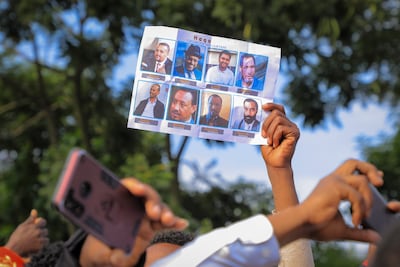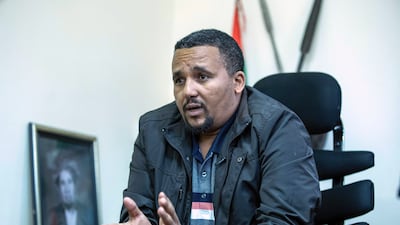Ethiopia’s government on Friday announced an amnesty for some of the country’s most high-profile political detainees, including opposition figure Jawar Mohammed and senior Tigray party officials, as Prime Minister Abiy Ahmed spoke of reconciliation for Orthodox Christmas.
“The key to lasting unity is dialogue,” the government said in a statement on the amnesty. “Ethiopia will make any sacrifices to this end.”
It was the most major move yet by the government after the country’s deadly Tigray war entered a new phase in late December, when Tigrayan forces retreated to their region amid a military offensive and Ethiopian forces said they would not advance further.
The war in Africa’s second most populous country has highlighted the deadly ethnic tension posing the greatest challenge to Mr Abiy’s rule.
Ethiopia’s state broadcaster, EBC, named both Jawar and opposition figure Eskinder Nega, who were detained in July 2020 following deadly unrest over the killing of popular ethnic Oromo artist Hachalu Hundessa, as those granted amnesty. Eskinder, leader of the Balderas party, left a detention centre on Friday evening.
But Tuli Bayis, a lawyer for Jawar of the Oromo Federalist Congress party and others, told The Associated Press that they refused to leave the prison facility as the order for their release came late in the day.
“They have security risks, so they preferred to exit the correction facility in daytime,” Tuli said, and added that he was not sure why the order for their release came now.
“We heard it is an amnesty; that’s what we know for now.”
Ethiopia’s Ministry of Justice said the amnesty for Jawar and Nega was granted “to make the coming national dialogue successful and inclusive”. Ethiopian members of the Federal Parliamentary Assembly on December 29 approved a bill to establish a commission for national dialogue amid international pressure for negotiations to end the war.
The state broadcaster also named several senior officials with Tigray’s ruling Tigray People’s Liberation Front party as being granted amnesty and said they will be released soon. They include Sebhat Nega, Kidusan Nega, Abay Woldu, Abadi Zemu, Mulu Gebregziabher and Kiros Hagos. They were arrested in late 2020 when government forces captured most of Tigray shortly after war erupted between Tigrayan forces and Ethiopian ones.

The ministry of justice said the TPLF detainees “were granted amnesty taking into consideration their age and health condition".
Friday’s announcement came a day after the US said its departing special envoy for the Horn of Africa, Jeffrey Feltman, met Ethiopia’s prime minister to again press for a negotiated end to the war.
UN Secretary General Antonio Guterres welcomed Friday’s development and called on the parties “to build on this significant confidence-building step by agreeing a cessation of hostilities and a lasting ceasefire, as well as launching a credible and inclusive national dialogue and reconciliation process".
The UN chief said that following his last contact with Mr Abiy, he also looks forward “to a meaningful improvement in humanitarian access to all areas affected by the year-long conflict".
UN spokesman Stephane Dujarric said last month that an estimated 9.4 million people across Tigray and neighbouring Amhara and Afar were “in critical need of food assistance".
He said on Thursday that some UN agencies and aid organisations will be forced to halt operations in the Tigray region if humanitarian supplies, fuel and cash are not delivered soon.
It is estimated that tens of thousands of people have been killed in the war that erupted in November 2020 between the Ethiopian government and Tigrayan forces, who once led the country.
The government of Mr Abiy, who had won the Nobel Peace Prize a year earlier, by that point was wrestling with the challenge of ethnic tension growing following the prime minister’s sweeping political reforms.

